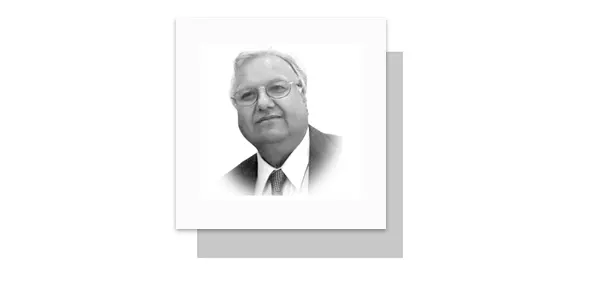WHO is Zafarullah Khan? Answer to this question might lead us further away from the true essence of the man. For instance, if you were to ask a journalist, he might describe him as a highly principled bureaucrat, belonging to the District Management Group—the very establishment of this cadre. Seeing “Barrister” attached to his name makes it evident that he is a legal expert, but law is not his sole identity. On television, he appears discussing politics. Unlike some intellectuals who suffer from the ailment of neutrality, he holds a clear political stance. He not only raises his voice in favour of his views but also considers active participation in collective efforts essential, indicating that he is also a politician. While three aspects of his identity have been revealed, the story does not end here.
If you meet a student from Quaid-e-Azam University, he will tell you he is a teacher, particularly of constitutional law. His ability to elucidate the Objectives Resolution with clarity and precision is uniquely his. Yet, if someone still finds this document hard to grasp, it could be due to honest intellectual differences or the ideological conflicts that have hindered understanding over decades. Even after revealing this aspect of his identity, Zafarullah Khan’s introduction remains incomplete. Despite traversing various modern educational disciplines, he is primarily a student of Islamic studies, having excelled in the classical curriculum of Dars-e-Nizami. Beyond this, he is a traveler and a dreamer of bygone eras. These diverse qualities and identities not only make Barrister Zafarullah Khan a unique personality but also endow him with the ability to view matters from multiple perspectives. It is no small feat when a scholar like Senator Irfan Siddiqui acknowledges that Barrister Zafarullah Khan’s talent is being underutilized.
Whether others benefit from his vast knowledge or not, he remains committed to his work. His recently published book, Ijtihad, is a treasure trove of thought. It examines the current state of global civilization and sciences and evaluates the contributions of Muslims to this intellectual level. Unlike those overawed by Western advancements, his approach is not blinded by the glitz of superficial knowledge, nor does he rest on the laurels of a glorious Islamic past. In chapters covering philosophy, science, medicine, law, history and sociology, he highlights the heights these disciplines have reached and acknowledges the milestones of this journey, shedding light on the efforts of Muslim scholars. What sets him apart is his meticulous historical analysis, which explains why Muslim societies lagged behind and outlines the consequences of this decline. Second part of the book delves deeper into these subjects, making it even more significant and intriguing. It examines the transformations in Muslim societies caused by various factors, particularly the role of religion and religious groups. Whether in Pakistan, other Muslim-majority countries, or among Muslim minorities worldwide, Zafarullah Khan analyzes these factors systematically in different chapters.
First chapter of the second part is particularly noteworthy. Addressing a Muslim audience, he elaborates in detail on the true intent of Islam—the Qur’an and Sunnah—in various aspects of life. One might question whether there can be differences over Islam’s true intent. While this is a valid question, it cannot be ignored that over 15 centuries of history, political, cultural, and scientific developments have profoundly impacted Muslim societies, leading to significant transformations. Zafarullah Khan examines these changes comprehensively and critically. This type of analysis is not only necessary but also courageous. Centuries of tradition and certain societal taboos have made it challenging even to mention such topics, let alone analyze them. Zafarullah Khan deserves commendation for undertaking this task. He has diagnosed the ailments afflicting the collective Muslim identity with clarity and thoroughness. To understand the issues facing Muslim societies, Zafarullah Khan proposes an interesting and practical method: content analysis of a hundred posters displayed in various mosques on religious topics. This analysis would reveal whether the discussions revolve around fundamental religious principles or trivial issues. Such an exercise could facilitate the identification of the challenges Muslim societies face.
Demand for the reconstruction of Islamic jurisprudence originates from a profound examination of Muslim civilization, as envisioned by the intellectual giant Allama Muhammad Iqbal. Iqbal addressed this in detail in his lectures, but nearly a century later, the world has undergone significant changes. Thus, it has become essential to re-evaluate the issues of Muslim societies. According to Zafarullah Khan, centuries of upheaval and events have disrupted the balance of Islamic thought. This balance can only be restored through the reconstruction of Islamic thought, which forms the essence of Ijtihad. Grounded in the Qur’an and Sunnah, Ijtihad does not create a new religion but re-establishes the equilibrium aligned with Islam’s true intent. The author poetically describes this process as dreaming of another era and provides pathways to realize this dream.
—This writer is former advisor to the president of Pakistan, author & mass media theorist.
(farooq.adilbhuta@gmail,com)









